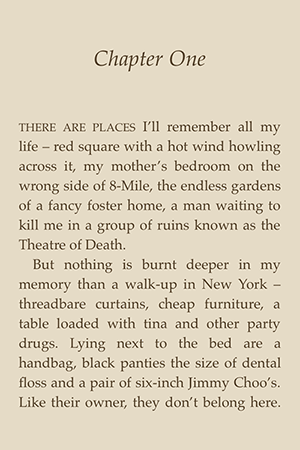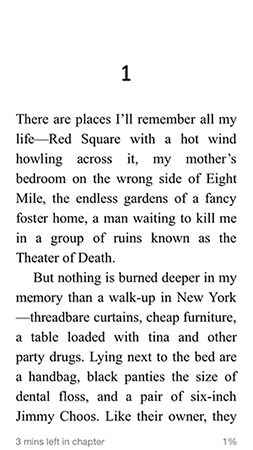Posts Tagged ‘e-books’
I Am Copy Editor
October 14th, 2014by Gwyn Headley
Managing Director
Tags: American, copy editor, e-books, ebooks, English, I Am Pilgrim, Terry Hayes
During the Frankfurt Book Fair, just past, my bedtime reading was an ebook, a thriller recommended to me by Yvonne: I Am Pilgrim by Terry Hayes, whose name, bafflingly, does not appear on the cover. It’s a rollicking and undemanding read, so I recommended it to my friend and travelling companion Mike Shatzkin, who immediately bought and downloaded it.
I had been complaining of the poor editing quality of most ebooks — the Copy Editor, diligently scanning for literals, is now an extinct species in the wild — and I Am Pilgrim hits you in the first line, with a Beatles quote and a mistake:
“THERE ARE PLACES I’ll remember all my life — red square with a hot wind howling across it …”
Such a shame that people don’t seem to be bothered any more. If you know enough about style to start a chapter with the first three words in small caps, then surely you’ll know that ‘red square’ should be ‘Red Square’ — and your copy editor should be on to it like a vat of hot metal.
Mike’s version was published by Emily Bestler Books, an imprint of Simon & Schuster, whereas my British version was published by Transworld, owned by Penguin Random House. Entirely separate companies, one in America, one in the UK.
Nevertheless the fact that they didn’t exchange digital files for the ebook and each created their version from scratch somewhat surprises me. “Keep the change” is not a frequent phrase in my vocabulary, but this seems like a wanton waste of money.
Mike said “What’s the problem with Red Square? It looks OK to me.” And in his version — the American edition — it was.
The troubling thing for me is that the American typesetting is more correct than the British version. Here they are, so you can compare them:
BRITISH vs AMERICAN
Chapter One vs 1
FIRST THREE WORDS in small caps vs First three words in U/LC
space dash space vs em-dash
red square vs Red Square
8-Mile vs Eight Mile
Theatre vs Theater
burnt vs burned
Choo’s vs Choos
and I’m sure there will be examples on every page, but you get the drift.
Two nations separated by a common language, indeed.
Prophecies and Prophets
August 27th, 2009by Gwyn Headley
Managing Director
Tags: books, clusterfuck nation, e-books, ebooks, guru, Mike Shatzkin, predictions, prophecies, prophets, publishing
There used to be a stable of magazines in London all with the same name format: Books and Bookmen, Art and Artists, Dance and Dancers. I wonder if they’d have been interested in Prophecies and Prophets as a title.
I was musing on this because this weekend our good friend Mike Shatzkin is coming to stay. He describes himself as a publishing consultant, others call him a publishing guru, I like to think of him as a publishing prophet. He would probably refute this. Few people have ‘Prophet’ on their calling cards (though I did meet a gent from Microsoft who had ‘Director of Publishing Evangelism’ as his job title on his cards). Mike is very keen on e-books, and sees them as the future; I’m keen, but not quite as keen, and see them as part of our future.
The best prophets are inevitably Jewish. Mike proudly claims to be a fourth generation atheist.
Was Mohammed Jewish before he started Islam? (there’s a good example for never starting something you can’t stop). Prophets of Doom. Only Jesus prophesied Good News, and even then only after you were dead. St Paul took a more pragmatic view: ‘where there are prophecies, so they shall vanish away.’
What’s the difference between prophecies and predictions? Prophecy has a more religious ring to it, but the best predictors have to be viewed as prophets. They certainly attract their followers. Jim Kunstler’s Clusterfuck Nation blog, always a good read, works hard to present Jim as a prophet, with links to his literary agent, movie agent, lecture agent, ad agent and so on. Perhaps the more dogmatic and absolute the prediction, the more likely it is to be viewed as a prophecy,
On the whole maybe we’d better keep on regarding Mike as a publishing consultant. No serious prophet should stick around to see if his prophecies will come true. And nobody got rich by prophesying good news.



